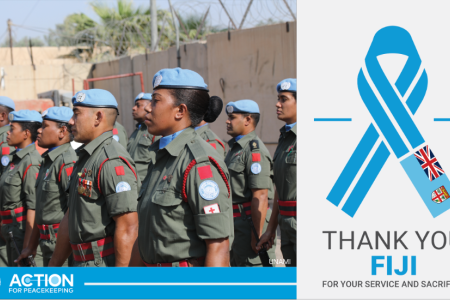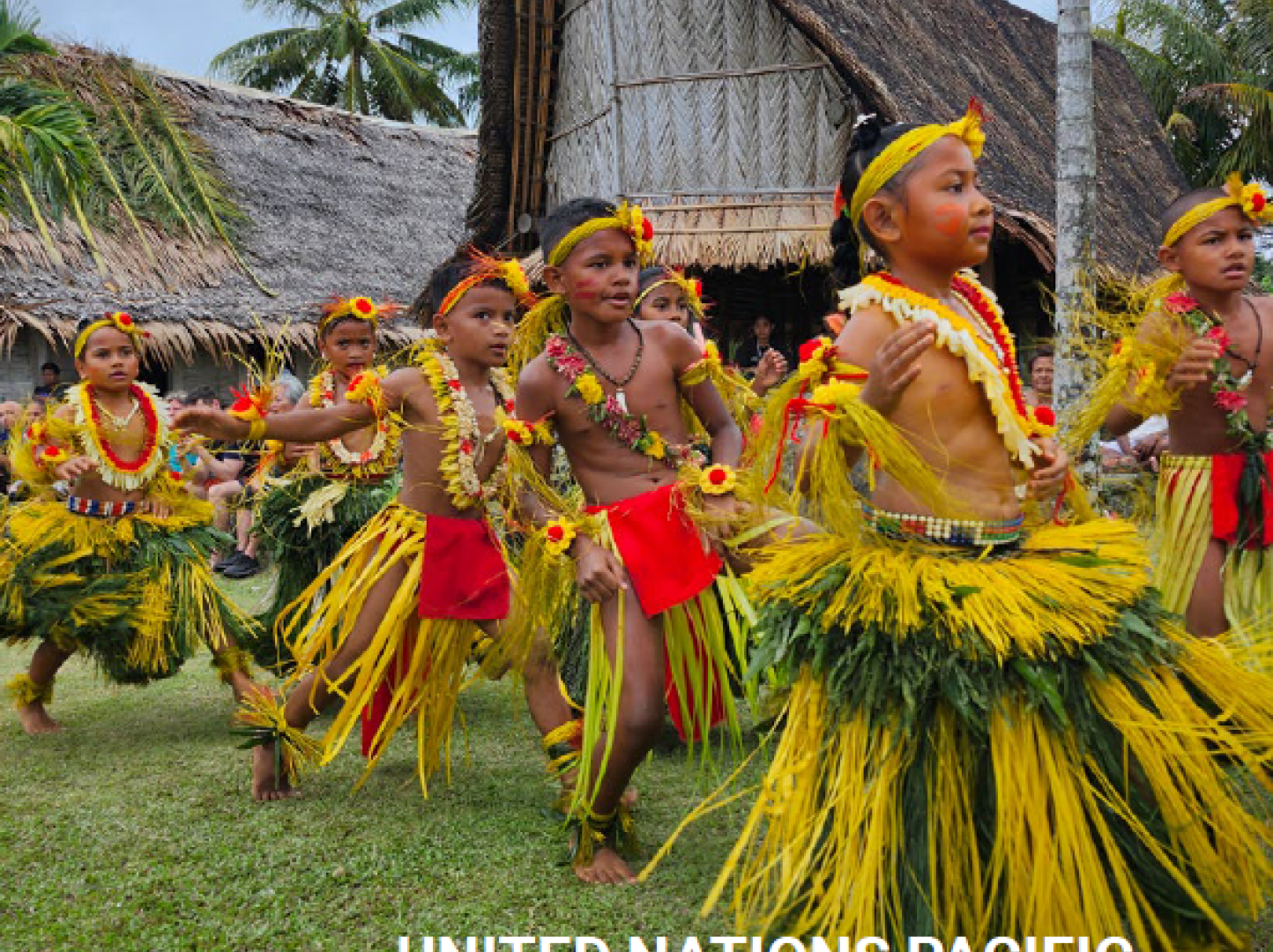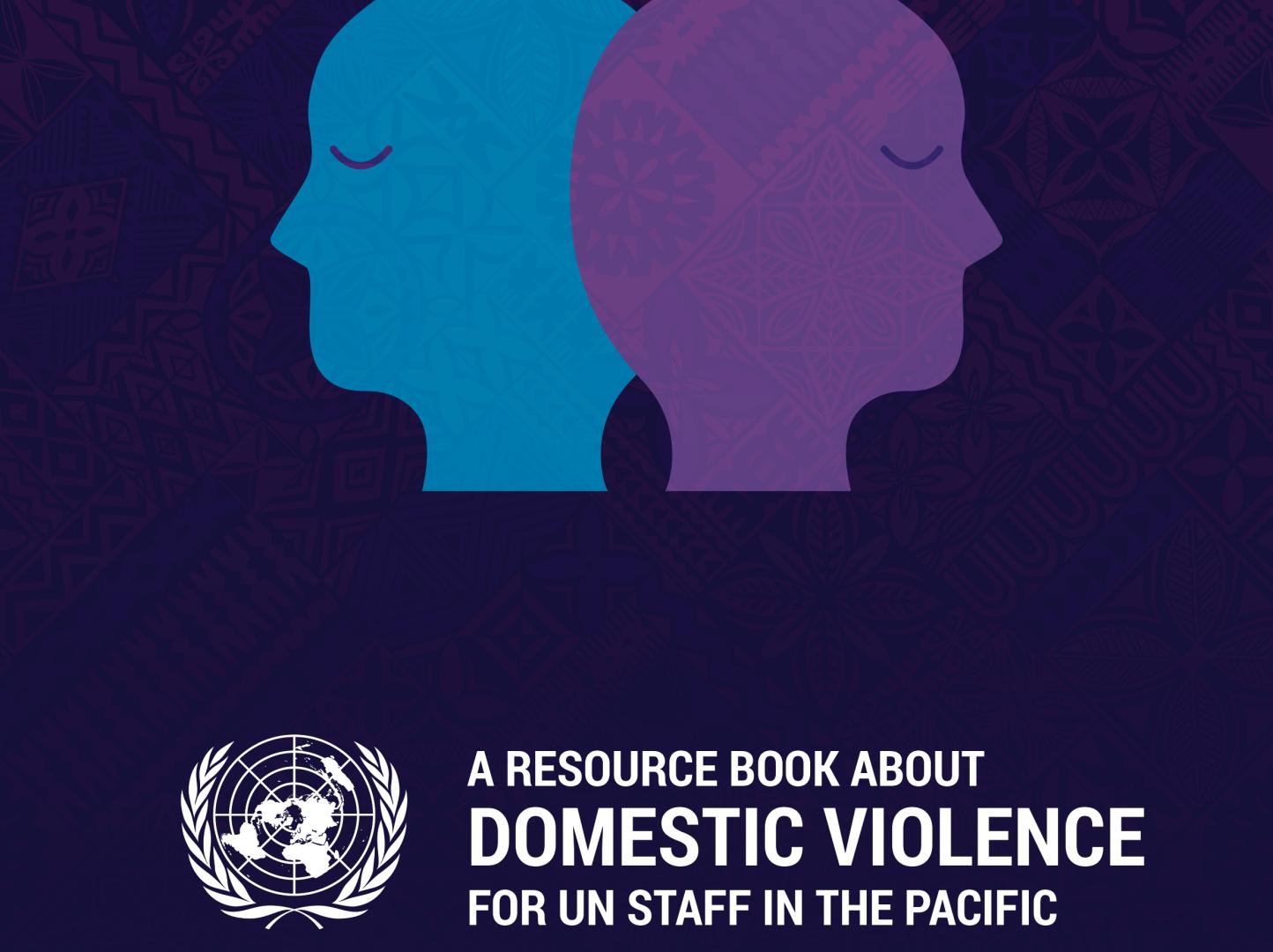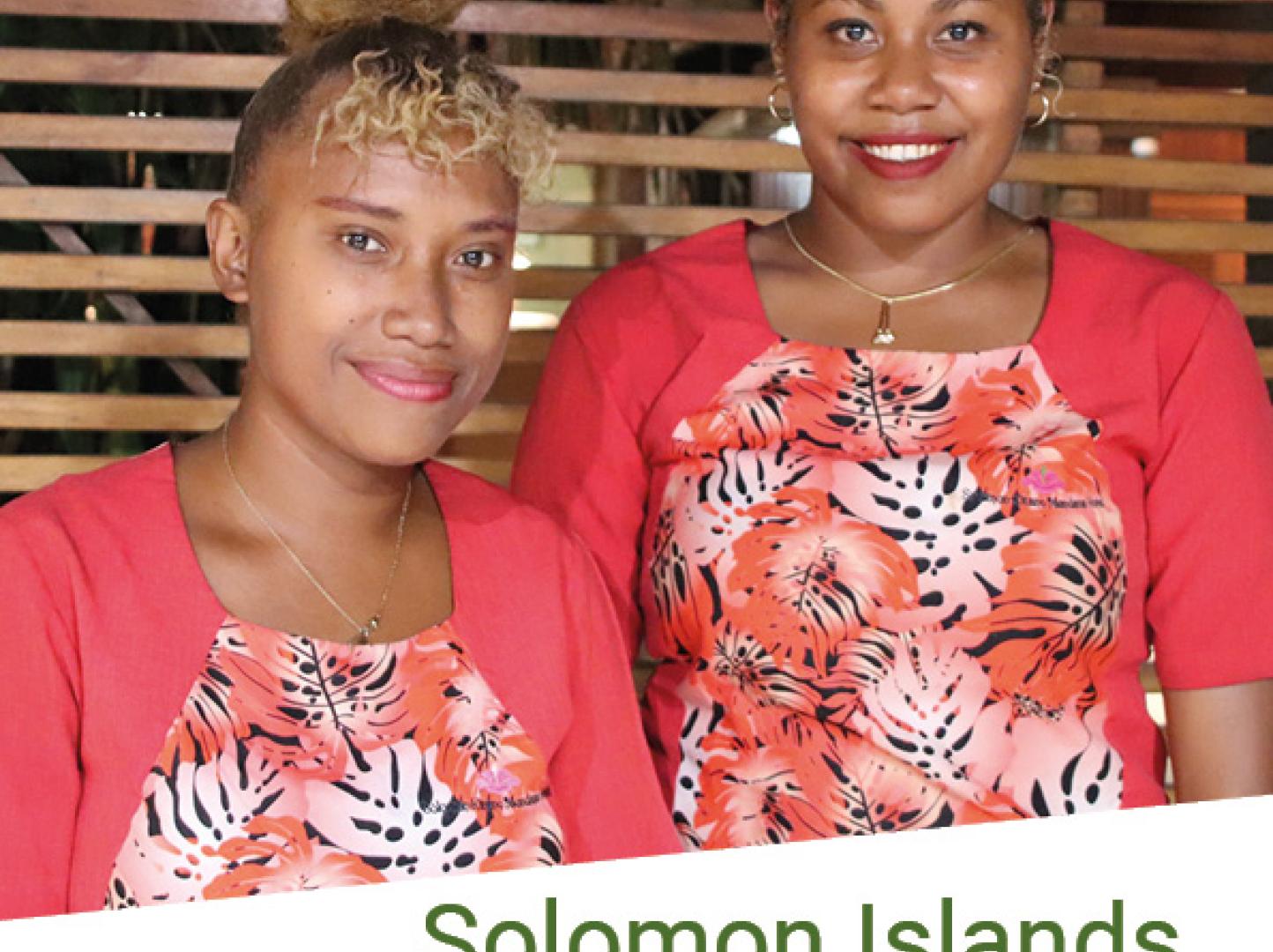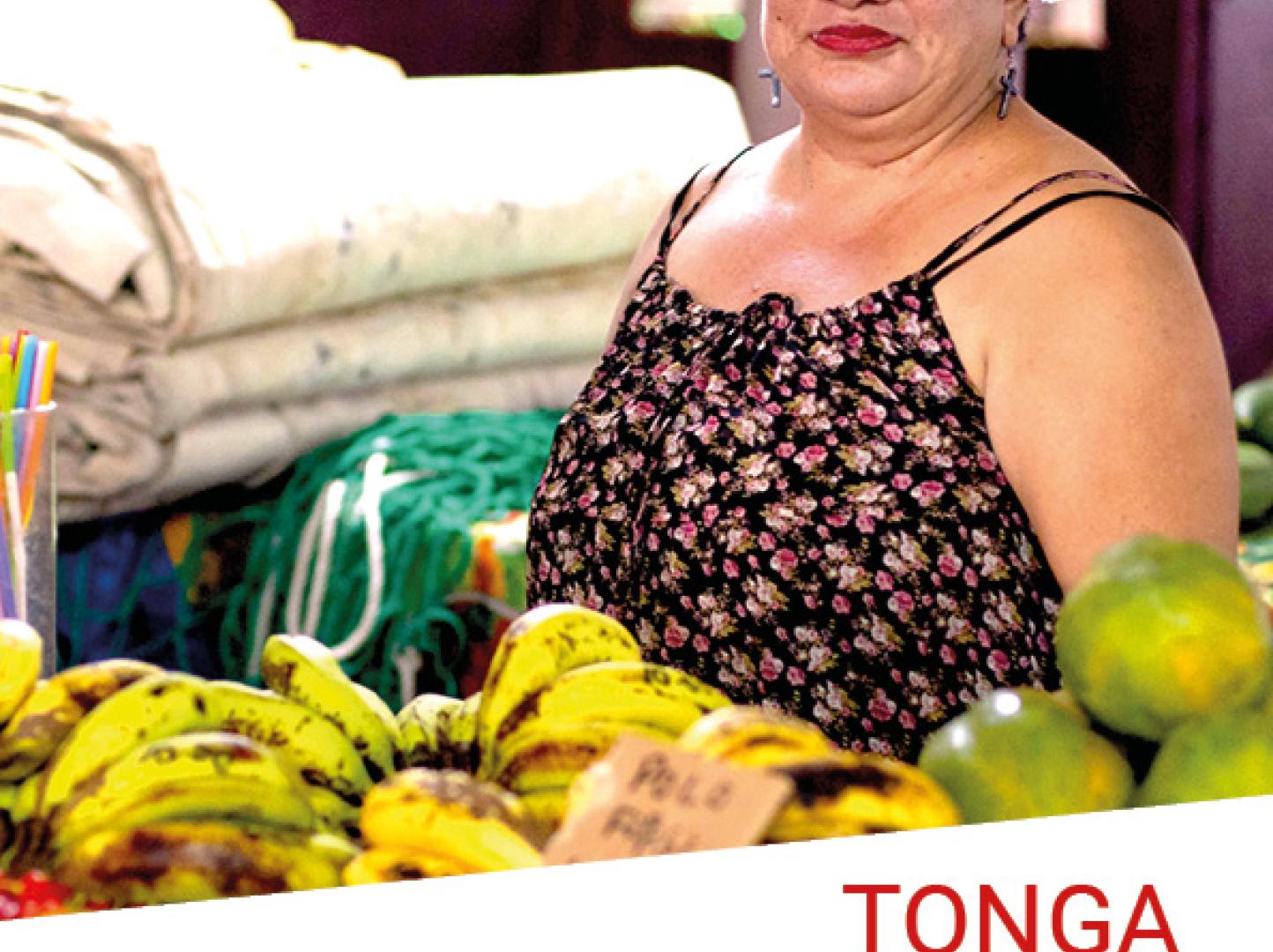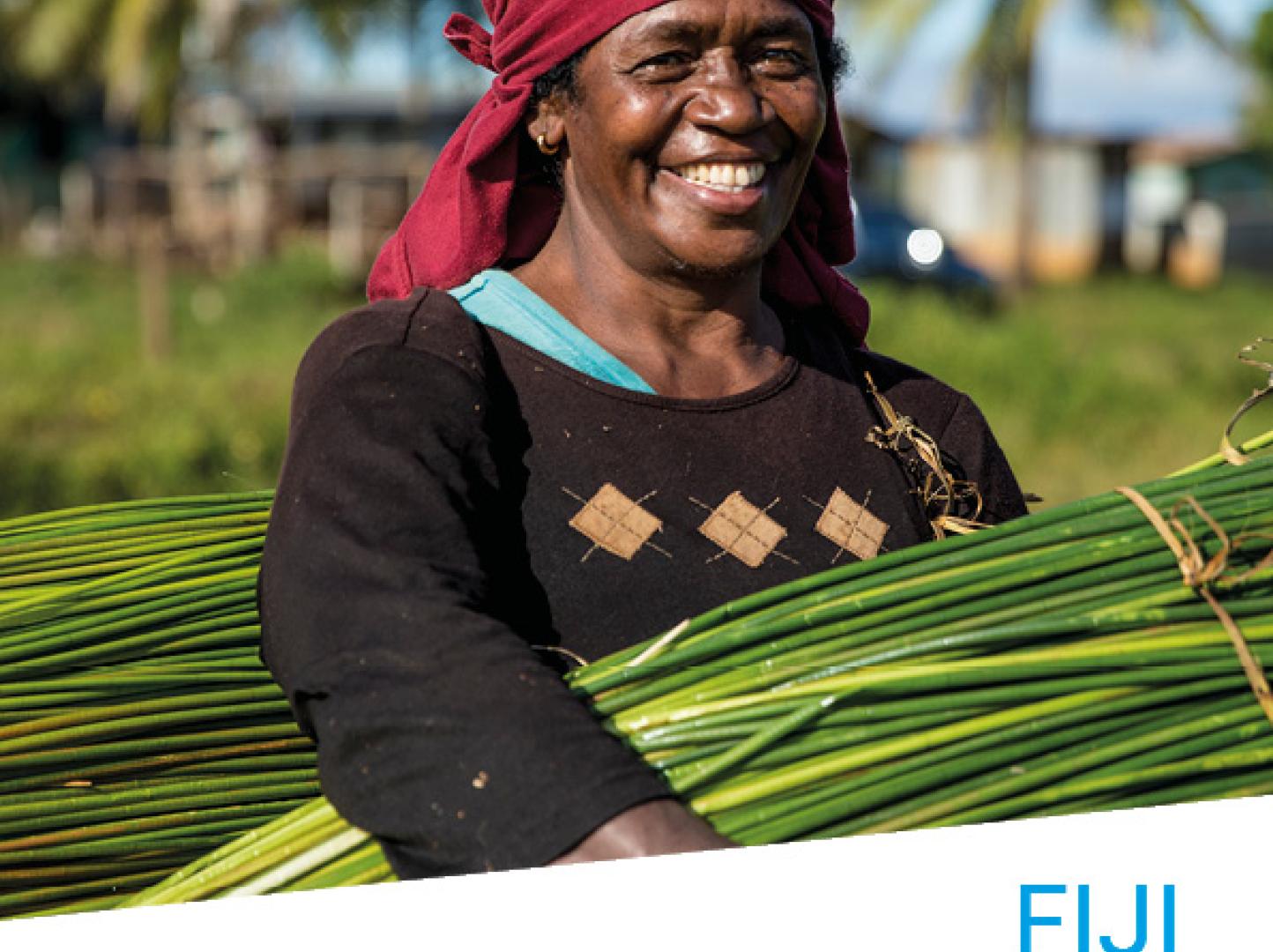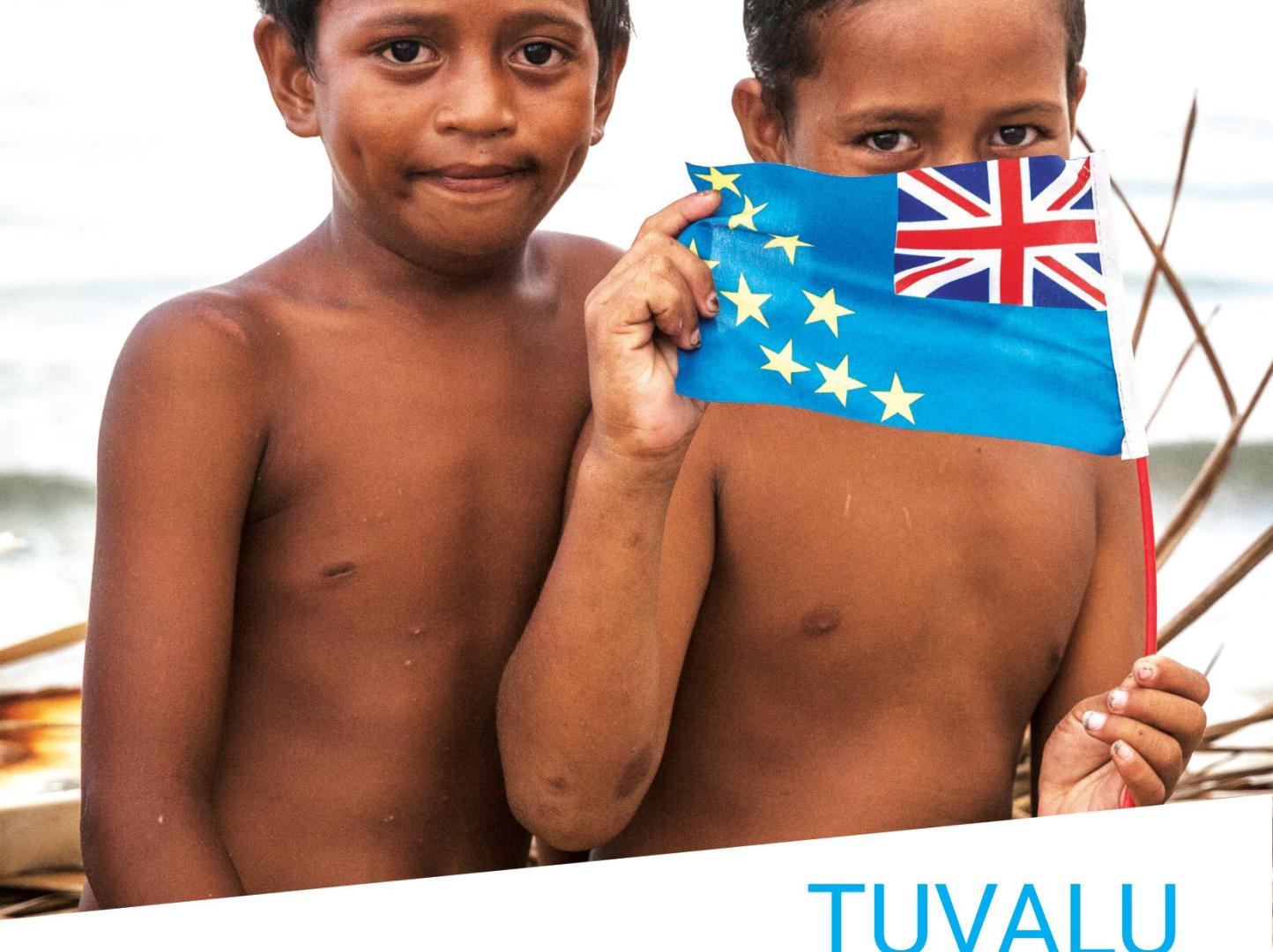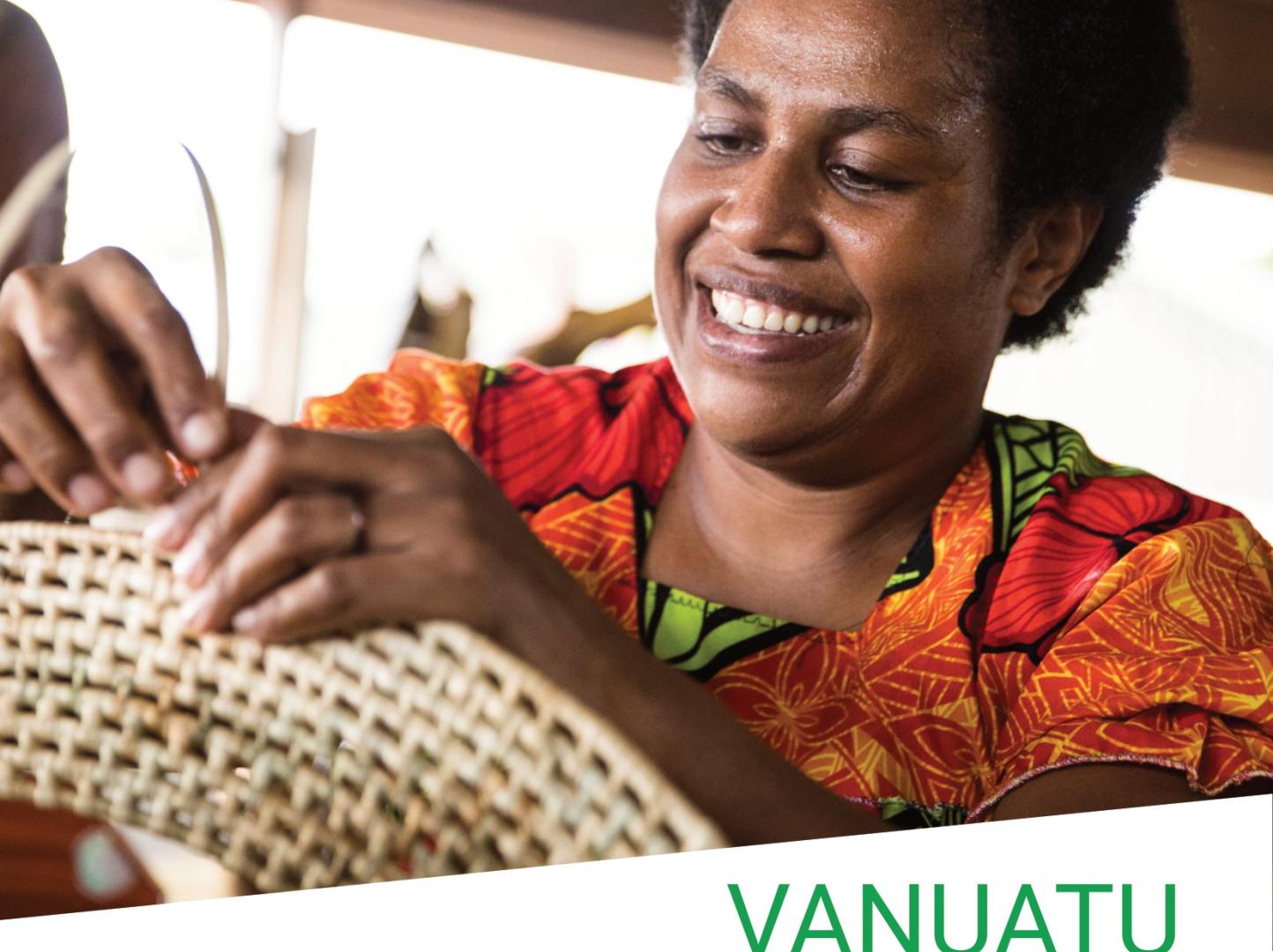Latest
Story
14 October 2025
From Ocean to Land: Tuvalu Reclaims Its Future Against Rising Seas
Learn more
Press Release
02 September 2025
Fiji launches Agribusiness Incubation Center with European Union support
Learn more
Speech
29 August 2025
RC Remarks at the Agenda Item 9: “Multi-stakeholder dialogue: Partnerships to promote sustainable solutions in Asia and the Pacific”-6th AP Forum
Learn more
Latest
The Sustainable Development Goals in Fiji, Solomon Islands, Tonga, Tuvalu, and Vanuatu
The Sustainable Development Goals are a global call to action to end poverty, protect the earth's environment and climate, and ensure that people everywhere can enjoy peace and prosperity. These are the goals the UN is working on in the Pacific.
Story
12 June 2024
Upholding Our Ocean Legacy as we celebrate World Environment Day and World Oceans Day
As custodians of the Pacific Ocean and the natural environments which surround it, Pacific Island Peoples know only too well the intertwined relationship between humanity and the planet's life-sustaining systems. Although celebrated as two different days, their significance and interconnectedness, especially in the Pacific, are an opportunity to highlight the criticality of preserving and protecting our environment and our oceans, which serve as the lifeblood of our planet. Across the Pacific, including the countries in which I serve - Fiji, Solomon Islands, Tonga, Tuvalu, and Vanuatu – the ocean is not simply a vast expanse of water; it is an integral part of the cultural heritage, livelihoods, and identities of people – a blue Pacific continent as some refer to it. For generations, the oceans have provided sustenance, transportation, meaning, and inspiration. They are home to a stunning marine biodiversity, supporting countless marine species and ecosystems that contribute to the well-being and prosperity of our communities. Despite their significant importance, our oceans continue to face unprecedented challenges. Climate change, pollution, overfishing, ocean acidification and habitat destruction threaten the health and resilience of marine ecosystems. Rising sea levels and extreme weather events pose existential threats to low-lying coastal communities, exacerbating vulnerabilities and displacing populations. As we reflect on World Environment Day and World Oceans Day, I am calling on all to renew our pledge to protect and conserve our oceans. This year's theme, "Ecosystem Restoration," reminds us of the urgent need to heal and revive our degraded marine ecosystems. By restoring mangroves, coral reefs, and coastal habitats, we can enhance biodiversity, mitigate climate change, and strengthen the resilience of coastal communities. Some of you might recall that the conclusion of the 15th Conference of Parties to the UN Convention on Biological Diversity (CBD) in 2022 saw the adoption of the Kunming-Montreal Global Biodiversity Framework. It was both encouraging and unsurprising to note the strong support from Pacific nations to ensure its realization. This Framework, aimed and halting and reversing nature loss, was adopted following the sharp documented decline in nature, threatening the survival of 1 million species and impacting the lives of billions of people. By reducing plastic pollution, improving waste management systems, and implementing effective fisheries management strategies, we can mitigate the impacts of human activities on our oceans and marine life. Just last month in Nadi, the CBD Secretariat partnered with the Secretariat of the Pacific Regional Environment Programme (SPREP), the Fiji Government, UN Food and Agriculture Organization (FAO) and United Nations Environment Programme (UNEP) to host a sub-regional dialogue on the National Biodiversity Strategy and Action Plans for Pacific countries. Participating Pacific nations included Cook Islands, Federated States of Micronesia, Fiji, Kiribati, Nauru, Niue, Palau, Papua New Guinea, Republic of the Marshall Islands, Samoa, Solomon Islands, Tonga, Tuvalu, and Vanuatu. A great turnout to safeguard and sustainably use biodiversity through addressing the root causes of ocean pollution and overfishing by promoting sustainable practices and strengthening marine conservation efforts. It has been encouraging to learn that the Pacific is on track to achieve some of the key targets of the Framework, including Target 3, which aims to ensure that by 2030, at least 30 percent of terrestrial, inland water, and coastal and marine areas are effectively conserved and managed through systems of protected areas and other conservation measures. Many Pacific countries have already achieved this target well ahead of schedule. As well as acknowledging the direct impacts these actions can have, we must also recognize the interconnectedness of environmental sustainability, social equity, and economic development. Building forward better from the COVID-19 pandemic and other disruptions requires an holistic approach that integrates environmental conservation, climate resilience, and inclusive growth. By investing in green technologies, renewable energy, the blue economy, and nature-based solutions, we can create new opportunities for sustainable development while protecting our precious natural resources. As representative of the UN Secretary-General, I stand in solidarity with Pacific governments, civil society, private sector, and individuals in our collective commitment and resolve to safeguarding our oceans and environment. We must take bold and decisive action to address these challenges and ensure the sustainable management of our marine resources for current and future generations. As we reflect on World Environment Day and World Oceans Day, let us recommit ourselves to the vision of a healthy and thriving planet where oceans are teeming with life, and communities continue to live in harmony with nature. Together, we can be even greater stewards of our ocean legacy, ensuring that it endures for generations to come.
1 of 5
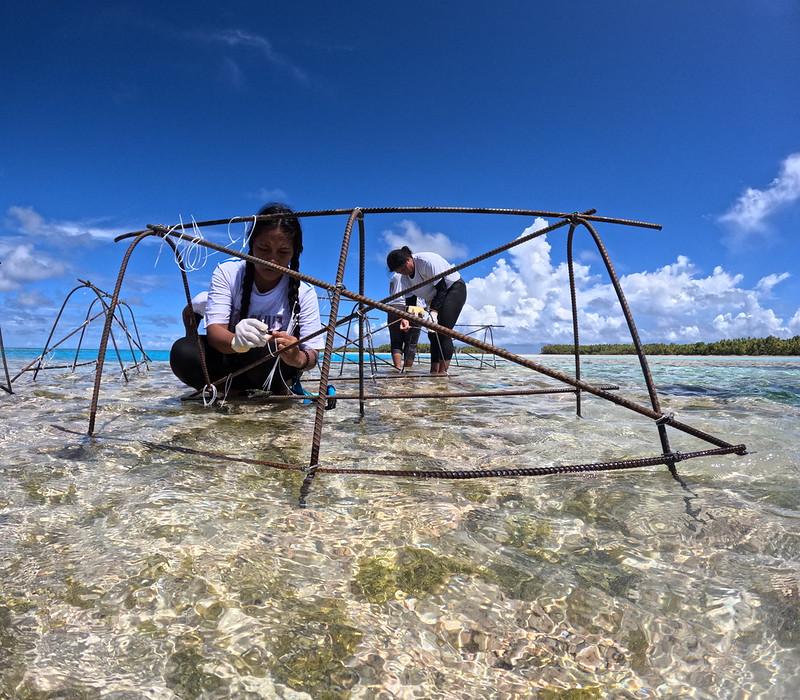
Story
29 May 2024
International Day of UN Peacekeepers: Fiji’s Enormous Contribution to Global Peacekeeping
It is a day that we mark with great pride, admiration, solemnity and honour for the men and women who have contributed immensely to international peace and security. It is both an opportunity to celebrate strides made towards peace and security, and to remember the heroism displayed in the face of great difficulty and tragedy, with some peacekeepers having made the ultimate sacrifice for the sake of peace. Fiji is very special in this regard because the chances are that, as you read this, you probably personally know some of these heroes – some of them are your parents, an aunt, a cousin, a sibling, or a neighbor. Many of the current and past Fiji leaders from all walks of life have also served as UN peacekeepers. This is a country in which peacekeeping is more than a reference to ‘the blue helmets’ – peacekeeping resonates on a very personal level with many Fijians here and across the globe. Fiji’s significant contribution to global UN Peacekeeping operations has been and remains a point of huge admiration and respect both within and outside of the UN. On a global scale, since 1948, over two million peacekeepers have served in 71 missions, supporting countries to navigate the challenging path from conflict to peace. Currently, there are over 76,000 peacekeepers from more than 120 countries deployed in 11 global operations. For more than four decades, Fiji has sent more troops and police per capita to serve UN peacekeeping operations than any other country in the world. We are in deep gratitude for their service. Fijian peacekeepers demonstrate extremely high levels of professionalism and dedication wherever they serve. Currently, Fiji provides over 330 uniformed personnel to seven UN peace operations globally. Today, its largest deployment of more than 160 UN Police is to the United Nations Assistance Mission for Iraq (UNAMI). Fiji first contributed peacekeepers to the UN when it deployed troops to Lebanon in 1978 and it has been a consistent contributor since. With over 330 uniformed personnel, including 42 women, across seven peace operations, Fiji is the 43rd largest contributor in absolute terms. As well as contributing to the UNAMI, Fiji also contributes to the UN Disengagement Force (UNDOF), the UN Mission in South Sudan (UNMISS), UN Truce Supervision Organization (UNTSO), UN Interim Force in Lebanon (UNIFIL), the UN Interim Force in Abyei (UNISFA), the UN Integrated Transition Mission in Sudan (UNITAMS), and the UN Mission to Support the Hudaydah Agreement (UNMAH). Having peacekeepers serve in conflict areas is a life-saving measure on the ground. Having more UN Peacekeepers in conflict areas results in fewer civilian deaths, less violence, and a higher chance of lasting peace. In many ways, UN Peacekeeping is a selfless profession dedicated to our highest collective goal: Peace. At great personal risk, peacekeepers work tirelessly in some of the most dangerous places to protect civilians, uphold human rights, and strengthen institutions. In marking this special day this year, I would like to conclude by referencing the UN Secretary-General António Guterres’ global plea on behalf of UN Peacekeepers, for continued support for their impactful, invaluable work: “More than 4,300 have paid the ultimate price while serving under the UN flag. We will never forget them. In order for our peacekeepers to respond to the challenges of today and tomorrow, they need the world’s support. September’s Summit of the Future will be a moment for countries to carry ideas forward through a New Agenda for Peace, which links peacekeeping with all efforts to prevent and end conflict. On this important day, and every day, let’s re-commit to supporting those who work for peace: The UN peacekeepers,” Mr. Guterres said. Fiji sets a gold standard in terms of its support to UN peacekeeping, especially in a time where conflict continues to engulf homes and indeed entire countries. Lasting peace requires hard work, sacrifice, and an unwavering commitment to our peacekeepers. Now, more than ever.
1 of 5
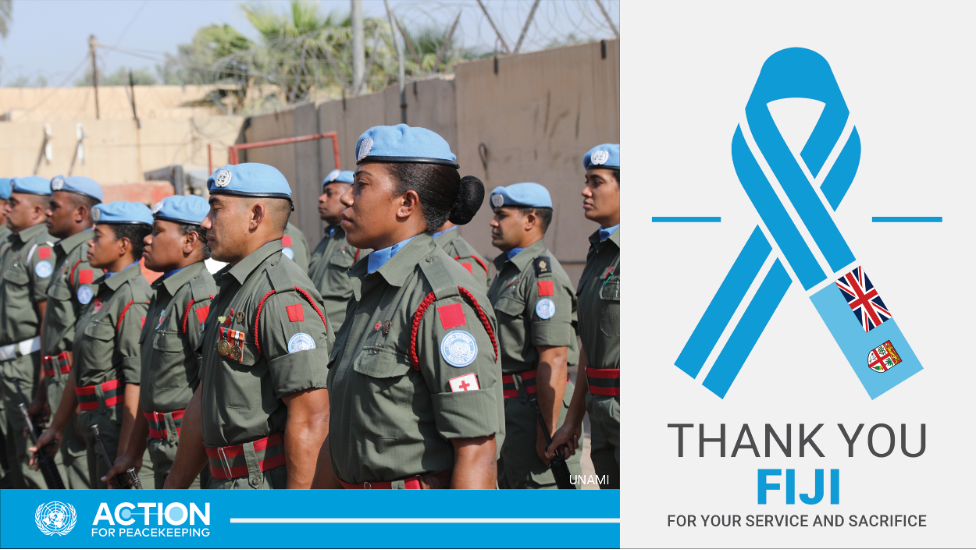
Press Release
06 December 2023
UN Resident Coordinator receives booster shot from Ministry of Health, warns that COVID-19 is not over
This morning, UN Resident Coordinator to Fiji, Dirk Wagener, received his COVID-19 booster shot at the Fiji Ministry of Health and Medical Services. He received the Pfizer Variant Containing Vaccine (VCV) which is a more advanced vaccine that provides protection against the omicron variant, which has posed new challenges.
While there remains a high population immunity from past COVID-19 infection and through vaccination, COVID-19 continues to spread and endanger people's lives. The most updated advice from the World Health Organization (WHO) recommends that people who have never received a COVID-19 vaccine, get at least one dose. For people who are older, have chronic diseases, are immunocompromised or pregnant, re-vaccination may be needed 6-12 months after the person’s most recent dose.
Mr. Wagener expressed gratitude to Fiji’s health workers and the Ministry for their continued work against COVID-19.
“I’d like to thank the team from the Ministry of Health and Medical Services for their tireless efforts to continue providing booster shots and making vaccines available for the people of Fiji, because COVID-19 is not over, it is still circulating, and I hope people will continue to check their vaccination status,” said Mr. Wagener.
“COVID-19 continues to be a particular threat to people who are older, have chronic diseases, or are immunocompromised or pregnant. I encourage everyone who has not yet, to get the COVID-19 vaccine in order to lower the risk of severe illness and death,” he added.
COVID-19 vaccines are safe and effective in preventing severe disease and deaths. Over 13 billion doses of COVID-19 vaccines have been administered globally since 2021, with careful monitoring of side effects. In 2021 alone, COVID-19 vaccines saved an estimated 14.4 million lives worldwide.
ENDS
1 of 5
Press Release
16 November 2023
United Nations And Government Of Fiji Launch Ground-Breaking Anticipatory Action Framework For Tropical Cyclones
By taking early action with an anticipatory approach, humanitarian responders can reduce costs and suffering, protect hard-won development gains, and allow affected people to recover better and faster from disasters.
The framework launched today with support for the UN Central Emergency Response Fund (CERF) provides a formal mechanism that enables humanitarian organizations to collectively plan for predictable shocks such as cyclones and mitigate their humanitarian impact. This innovative initiative marks a significant stride towards enhancing disaster preparedness and response strategies in the Pacific region.
"As we have seen with TC Lola, the urgency for investing in anticipatory action in the Pacific has never been more apparent. emphasized Dirk Wagener, UN Resident Coordinator for Fiji, Solomon Islands, Tonga, Tuvalu and Vanuatu. "With the increasingly complex landscape of hazards and the impacts of climate change, this framework provides a vital tool for timely and effective humanitarian response to communities affected by climate disasters."
Anticipatory Action for cyclones leverages meteorological forecast data to pre-emptively mitigate and respond to the most likely severe impacts on affected communities. The framework integrates anticipatory action with adaptive social safety nets, supplemented by in-kind assistance, providing essential support for families to cope with impending storms.
The framework in Fiji has been developed through a consultative process with communities and has been endorsed by key stakeholders through proactive collaboration between humanitarian partners, UN agencies, the Red Cross, and the Government of Fiji. Activities will be strategically streamlined through the national cluster system to ensure efficient execution and complementarity with national response efforts and priorities.
To learn and demonstrate how collective anticipatory action can work at scale, the Emergency Relief Coordinator Mr Martin Griffiths has committed up to US$140 million from the Central Emergency Response Fund (CERF) to pilot anticipatory action globally in a diverse range of contexts and for different types of shocks.
The Anticipatory Action Framework for Tropical Cyclones in Fiji was approved by the United Nations Emergency Relief Coordinator on 13 November 2023, with the UN Central Emergency Response Fund (CERF) covering a payout of up to US$2.4 million in case of a triggering event until May 2025.
Today’s innovation is the first coordinated anticipatory approach of its kind led by the UN in the region, paving the way for the adoption of similar anticipatory strategies across the Pacific to more effectively support people and communities affected by the Climate Crisis.
ENDS
1 of 5
Video
25 November 2023
UNRC on International Day for the Elimination of Violence against Women (Nov 25)
UNRC for Fiji, Solomon Islands, Tonga, Tuvalu & Vanuatu delivers a message on the International Day for the Elimination of Violence against Women.
1 of 5
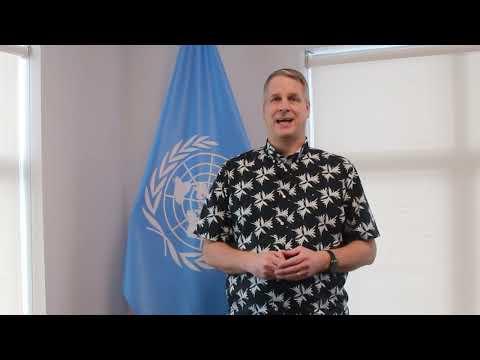
Story
14 October 2025
From Ocean to Land: Tuvalu Reclaims Its Future Against Rising Seas
Tuvalu today marked a historic milestone, the completion of 8 hectares of reclaimed land under Phase II of the Tuvalu Coastal Adaptation Project (TCAP). Where ocean waters once threatened a nation’s existence, solid ground now rises as proof of what visionary leadership, international partnership, and collective resolve can achieve.Just a few years ago, UN Secretary-General António Guterres stood waist-deep in these waters to spotlight Tuvalu’s plight. Today, that same location is raised land designed to stay above sea levels beyond 2100, a striking transformation that symbolises hope, sovereignty, and the right to exist with dignity. Climate Reality at Tuvalu’s DoorstepTuvalu, the world’s fourth smallest country, comprises only 25 square kilometres of low-lying atolls much of it less than one meter above high tide. Without decisive global action, projections show that by 2050–2060, nearly half of Funafuti could flood during monthly tides, and by 2100, less than 10% of land may remain dry. For Tuvalu, a few centimetres of sea level rise means the difference between safety and submersion, between survival and displacement. TCAP: Engineering Resilience, Securing FuturesWhen the first phase of the Tuvalu Coastal Adaptation Project began in 2017, the goal was clear: to shield Tuvalu’s fragile shores from an encroaching ocean. Backed by the Green Climate Fund with US$36 million, and supported by Australia and Tuvalu, Phase I fortified coastlines across Funafuti, Nanumea, and Nanumaga, giving communities their first real defence against rising seas.Now, Phase II builds on that legacy. Funded by Australia, New Zealand, and the United States with US$17.5 million, the next chapter stretches protection to 800 meters of Tuvalu’s southern shoreline and reclaims 8 new hectares of land, a gift of security and space for generations to come.Along these coasts, protective seawalls, reef-top barriers, and berms now rise against the tide. Together, they guard homes, schools, hospitals, and cultural sites, quietly redefining what resilience looks like in the Pacific.Beyond Infrastructure: A People-Centred ApproachWhat makes TCAP unique is its holistic model. It builds both land and local capacity.Scholarships support Tuvaluan students in coastal and climate studies.Women and youth receive training in hazard management and coastal adaptation, fostering inclusion and leadership.A climate risk information system empowers future planning, while gender-responsive governance ensures all voices are heard.Every phase involved community participation, embedding traditional knowledge and local ownership.A Blueprint for Global AdaptationAs Prime Minister Feleti Penitala Teo told the 80th UN General Assembly: “If we save Tuvalu, we save the world.” Tuvalu’s success offers a model for all Small Island Developing States, proving that with leadership, science, and solidarity, nations can rise above the waves.True Multilateralism in ActionTCAP embodies global cooperation at its best — led by the Government of Tuvalu, implemented by UNDP, and supported by Australia, New Zealand, and the United States, with key technical partners SPC and Hall Contracting. It shows that when nations unite behind a shared purpose, even the smallest island can inspire the world.Reclaimed Land, Reclaimed HopeThe newly reclaimed land symbolises far more than infrastructure; it represents reclaimed dignity and destiny.
Plans are already in motion for sustainable development, guided by the Funafuti Kaupule’s Development Control Plan. The reclaimed area will provide space for housing, livelihoods, and public facilities, allowing Tuvaluans to remain on their ancestral land and sustain their way of life.A Nation Rising Above the WavesTuvalu’s story is not of victimhood, but of agency, innovation, and leadership. From climate conferences to the UN General Assembly, Tuvalu continues to champion climate justice and global solidarity. Guided by its national vision Te Kete, the government is building a peaceful, resilient, and prosperous future for all Tuvaluans.The UN stands proudly beside Tuvalu in this journey, reaffirming its commitment to help the nation build resilience, secure sovereignty, and inspire the world.Where Determination Meets PossibilityToday’s reclaimed land stands as Tuvalu’s highest physical point and a powerful symbol of what can be achieved when determination meets possibility. Tuvalu is not waiting for rescue. It is saving itself, proving that courage, knowledge, and partnership can turn an existential threat into an enduring opportunity. In the Pacific, the ocean connects us all. Tuvalu’s victory over rising seas is not just its own; it is a victory for humanity.
Plans are already in motion for sustainable development, guided by the Funafuti Kaupule’s Development Control Plan. The reclaimed area will provide space for housing, livelihoods, and public facilities, allowing Tuvaluans to remain on their ancestral land and sustain their way of life.A Nation Rising Above the WavesTuvalu’s story is not of victimhood, but of agency, innovation, and leadership. From climate conferences to the UN General Assembly, Tuvalu continues to champion climate justice and global solidarity. Guided by its national vision Te Kete, the government is building a peaceful, resilient, and prosperous future for all Tuvaluans.The UN stands proudly beside Tuvalu in this journey, reaffirming its commitment to help the nation build resilience, secure sovereignty, and inspire the world.Where Determination Meets PossibilityToday’s reclaimed land stands as Tuvalu’s highest physical point and a powerful symbol of what can be achieved when determination meets possibility. Tuvalu is not waiting for rescue. It is saving itself, proving that courage, knowledge, and partnership can turn an existential threat into an enduring opportunity. In the Pacific, the ocean connects us all. Tuvalu’s victory over rising seas is not just its own; it is a victory for humanity.
1 of 5
Story
06 June 2025
Pacific Pioneers: How Fijian Cities and Towns are Shaping a Sustainable Future
Through the Joint SDG-Funded initiative "Accelerating Multi-Level Action for SDG Localization," communities across Fiji are translating abstract global goals into practical, community-led sustainable development—empowering cities like Suva to lead on resilience, inclusion, and sustainability, while inspiring other small island states to follow suit. In 2025, Suva- the capital of Fiji- achieved a historic milestone by becoming the first city in a Pacific Small Island Developing State to develop a Voluntary Local Review (VLR) of the SDGs.
This initiative demonstrates an innovative approach to locally-led sustainable development. Instead of top-down global mandates, it proves that real progress happens when global goals meet local needs. By focusing on practical, community-level improvements, Fiji is showing how sustainable development can create immediate, tangible benefits.The VLR process showcases Suva's progress in areas such as sanitation and public transportation while addressing challenges in healthcare, gender equality, and climate action, aligned with eight prioritized SDGs. The VLR’s recommendation to establish a dedicated SDG Implementation Committee is in progress to oversee local integration and ensure accountability, for accelerated SDGs achievement. Running from October 2024 to October 2025, this project is led by UNESCAP in partnership with UN-Habitat under the leadership of the UN Resident Coordinator.
Co-chaired by Ms. Seema Sharma, Permanent Secretary for the Ministry for Local Government and the UN Resident Coordinator Mr. Dirk Wagener, the project engages not just Suva City Council but will also develop VLR reports with Lautoka City Council and Labasa Town Council, as well as implement a national training programme on SDG localization for all 13 local councils in Fiji, fostering a network of city and town councils dedicated to sustainability. Local governments are now equipped with tools, data, and strategies to align their planning with the SDGs, ensuring no one and no place is left behind. As Fiji leads the way, it sends a message across the Pacific and beyond that sustainable development starts in our neighborhoods, in our cities, and in the heart of communities determined to build a better future.
This initiative demonstrates an innovative approach to locally-led sustainable development. Instead of top-down global mandates, it proves that real progress happens when global goals meet local needs. By focusing on practical, community-level improvements, Fiji is showing how sustainable development can create immediate, tangible benefits.The VLR process showcases Suva's progress in areas such as sanitation and public transportation while addressing challenges in healthcare, gender equality, and climate action, aligned with eight prioritized SDGs. The VLR’s recommendation to establish a dedicated SDG Implementation Committee is in progress to oversee local integration and ensure accountability, for accelerated SDGs achievement. Running from October 2024 to October 2025, this project is led by UNESCAP in partnership with UN-Habitat under the leadership of the UN Resident Coordinator.
Co-chaired by Ms. Seema Sharma, Permanent Secretary for the Ministry for Local Government and the UN Resident Coordinator Mr. Dirk Wagener, the project engages not just Suva City Council but will also develop VLR reports with Lautoka City Council and Labasa Town Council, as well as implement a national training programme on SDG localization for all 13 local councils in Fiji, fostering a network of city and town councils dedicated to sustainability. Local governments are now equipped with tools, data, and strategies to align their planning with the SDGs, ensuring no one and no place is left behind. As Fiji leads the way, it sends a message across the Pacific and beyond that sustainable development starts in our neighborhoods, in our cities, and in the heart of communities determined to build a better future.
1 of 5
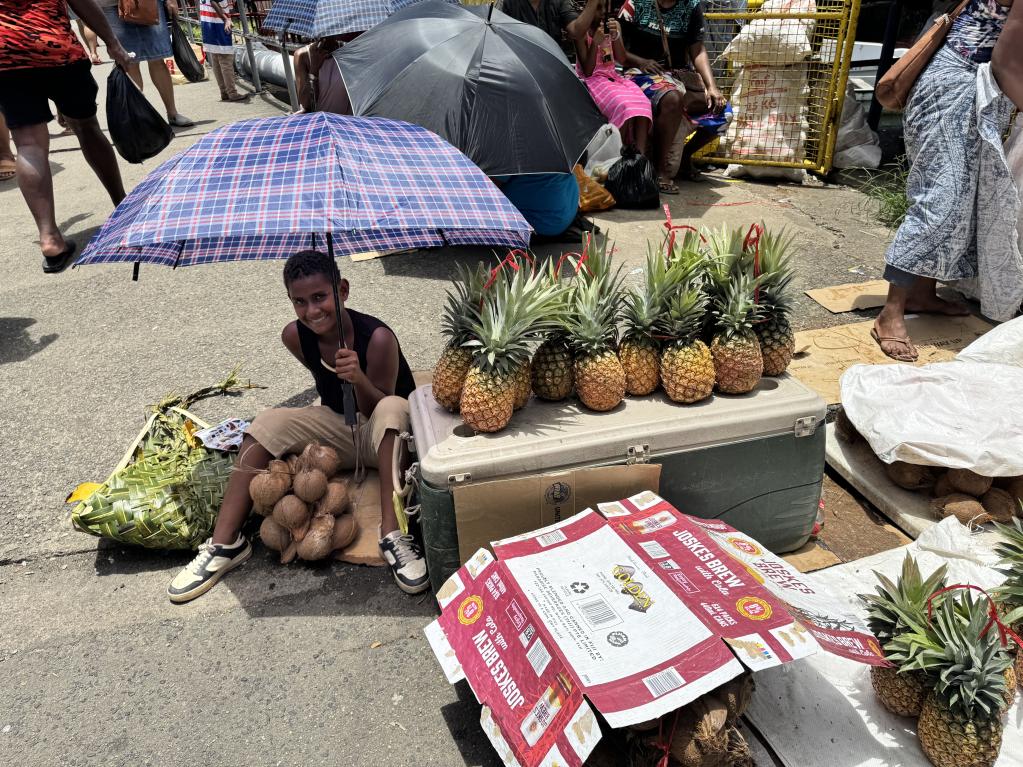
Story
11 April 2025
DRIVING ACTION: JOINT HUMANITARIAN SUPPORT FOR VANUATU
The Republic of Vanuatu is one of the most vulnerable nations in the world. Nestled within the “ring of fire” and the “cyclone belt,” its 83 islands spread across the vast Pacific Ocean are constantly threatened by natural disasters, especially cyclones and earthquakes. On December 17, 2024, a destructive 7.3-magnitude earthquake struck, leaving the island nation with immense challenges. The disaster impacted approximately 80,000 people, resulting in 14 fatalities, over 250 injuries, and the temporary displacement of thousands.
Under the leadership of the Government of Vanuatu, a coordinated humanitarian response was swiftly mobilized, with the Pacific Humanitarian Team (comprising United Nations agencies, international financial institutions, and humanitarian organizations) working in close partnership to provide life-saving support. Immediate funding from the Central Emergency Response Fund (CERF), UN agencies, and international partners facilitated the rapid deployment of critical resources to affected communities.
Guided by the Resident and Humanitarian Coordinator, Mr. Dirk Wagener, the UN and its partners prioritized health services, including mobile clinics and temporary medical facilities; clean water access through system restoration and hygiene kit distribution; emergency shelter and essential supplies; protection measures for vulnerable groups; food aid; and education continuity through Temporary Learning Spaces and mental health support.
"This coordinated response highlights our collective commitment to leaving no one behind," said Mr. Wagener. "Together with the Government of Vanuatu, the Pacific Humanitarian Team, and our partners, we are not only addressing immediate needs but also laying the foundation for early recovery, resilience, and sustainable rebuilding."As Vanuatu moves towards recovery and long-term resilience, the UN system remains fully engaged, ensuring that humanitarian assistance transitions into sustainable development, and that affected communities receive continued support to rebuild stronger and safer.TOGETHER WITH THE GOVERNMENT OF VANUATU, THE RCO IS NOT ONLY ADDRESSING IMMEDIATE NEEDS BUT ALSO LAYING THE FOUNDATION FOR EARLY RECOVERY, RESILIENCE, AND SUSTAINABLE REBUILDING.
Under the leadership of the Government of Vanuatu, a coordinated humanitarian response was swiftly mobilized, with the Pacific Humanitarian Team (comprising United Nations agencies, international financial institutions, and humanitarian organizations) working in close partnership to provide life-saving support. Immediate funding from the Central Emergency Response Fund (CERF), UN agencies, and international partners facilitated the rapid deployment of critical resources to affected communities.
Guided by the Resident and Humanitarian Coordinator, Mr. Dirk Wagener, the UN and its partners prioritized health services, including mobile clinics and temporary medical facilities; clean water access through system restoration and hygiene kit distribution; emergency shelter and essential supplies; protection measures for vulnerable groups; food aid; and education continuity through Temporary Learning Spaces and mental health support.
"This coordinated response highlights our collective commitment to leaving no one behind," said Mr. Wagener. "Together with the Government of Vanuatu, the Pacific Humanitarian Team, and our partners, we are not only addressing immediate needs but also laying the foundation for early recovery, resilience, and sustainable rebuilding."As Vanuatu moves towards recovery and long-term resilience, the UN system remains fully engaged, ensuring that humanitarian assistance transitions into sustainable development, and that affected communities receive continued support to rebuild stronger and safer.TOGETHER WITH THE GOVERNMENT OF VANUATU, THE RCO IS NOT ONLY ADDRESSING IMMEDIATE NEEDS BUT ALSO LAYING THE FOUNDATION FOR EARLY RECOVERY, RESILIENCE, AND SUSTAINABLE REBUILDING.
1 of 5
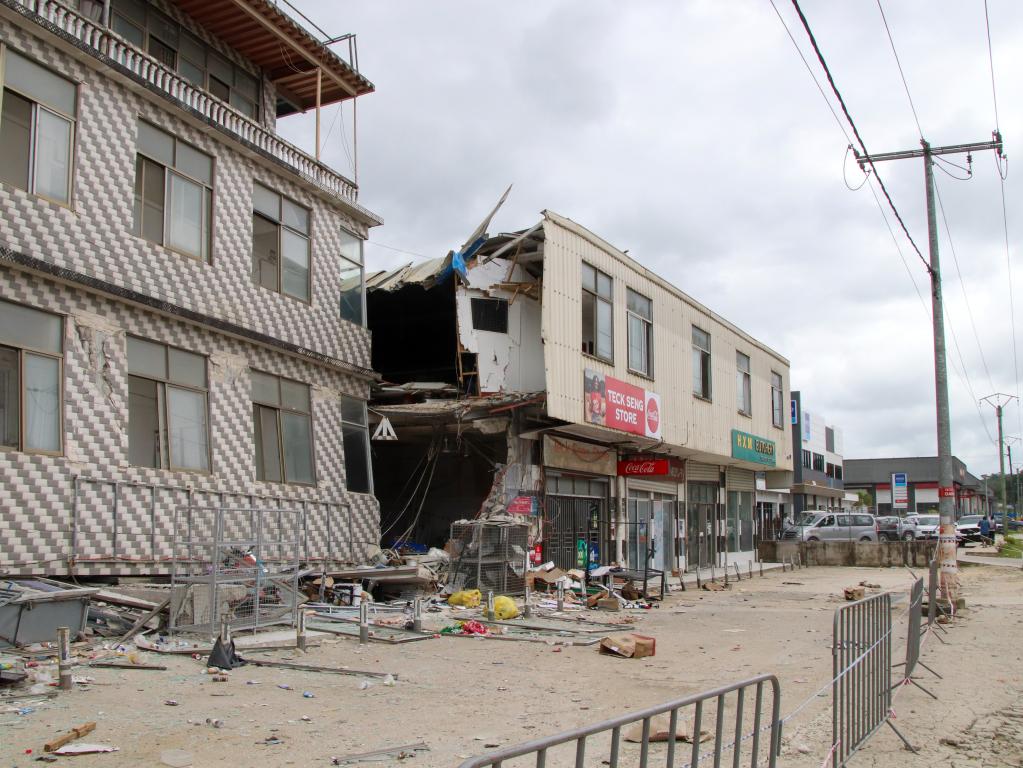
Story
10 December 2024
Time to Act Now: Ending Violence Against Women in the Pacific
Globally, every 11 minutes, a woman is killed—an alarming and heart-wrenching statistic that underscores the global epidemic of gender-based violence (GBV). The International Day for the Elimination of Violence Against Women, observed on November 25, reminds us of this crisis and challenges us to act with urgency. This day also launched the annual 16 Days of Activism, calling for a united stand to confront violence against women and girls.Violence against women remains a staggering global injustice. One in three women worldwide experiences physical or sexual violence, usually at the hands of an intimate partner. These are not just numbers; they represent the lived experiences of women—daughters, mothers, friends—whose safety, dignity, and potential are stolen by violence.The Pacific paints an even grimmer picture. Violence against women and girls here is among the highest in the world—double the global average. This violence tears at the fabric of our communities, undermines development, and stifles our collective efforts to address critical challenges like the climate crisis. How can we truly achieve sustainable development when half the population faces such profound threats to their well-being and rights?The Urgency for ChangeThis year's UNITE Campaign amplified a powerful message: the time for complacency and empty promises has passed. To end violence against women, we must confront its root causes—harmful social norms, entrenched gender inequalities, and systems of impunity that allow perpetrators to escape accountability.In the Pacific, systemic change begins with coordinated, survivor-centered responses. Governments must establish and fund comprehensive, multi-sectoral mechanisms to address Gender-Based Violence. Essential services—healthcare, legal aid, psychosocial support, and safe shelters—must be accessible and adequately resourced. Yet, services alone are not enough. We must also dismantle societal norms that condone violence and cultivate a culture of equality and respect.In the Pacific, the EU-funded UN Spotlight Initiative, launched in 2020, focused on country-specific commitments to end domestic and intimate partner violence across the Pacific. Implemented by UNDP, UNICEF, UN Women, UNFPA, and IOM, the Initiative in the Pacific supported the strengthening of laws, policies, and institutional capacities aligned with international human rights standards. It promoted behavior change to tackle harmful social norms, empowered women’s organizations and civil society, and enhanced survivor-centered support services, including legal aid, healthcare, and safe spaces. The initiative focused on evidence-based approaches by improving data collection and analysis while addressing the unique cultural contexts of Pacific Island nations. Through regional collaboration and community engagement, it fostered sustainable, inclusive solutions to prevent violence and advance gender equality. A Call to Action: From Awareness to AccountabilityAs we approach the 30th anniversary of the Beijing Declaration and Platform for Action in 2025, it is clear that the fight for gender equality and the eradication of Gender-Based Violence requires collective commitment. Governments must strengthen legal frameworks, enforce protections, and hold perpetrators accountable. But governments cannot do it alone. Civil society, businesses, communities, and individuals all have critical roles to play.The United Nations remains steadfast in its commitment to work with governments and civil society to dismantle the structural barriers that perpetuate Gender-Based Violence. Our approach is rooted in human rights: addressing root causes, empowering survivors, and amplifying the voices of women and girls.As individuals, we are not powerless. Each of us can be an ally—supporting survivors, participating in local campaigns, challenging harmful norms, and advocating for systemic change. A Better Future Is Within ReachThe road ahead is long, but not insurmountable. By standing together, supporting CSO and NGOs, and holding perpetrators accountable, we can create a world where every woman and girl is free from violence and fear. Let this not just be a moment of reflection, but a call to action.The time to act is now. The United Nations stands in solidarity with the Pacific’s women and girls, and we urge every individual, every community, and every government to join us in this fight. Together, we can build a future where violence against women is a thing of the past—because no woman should ever live in fear, and no girl should ever grow up thinking violence is her fate.
1 of 5
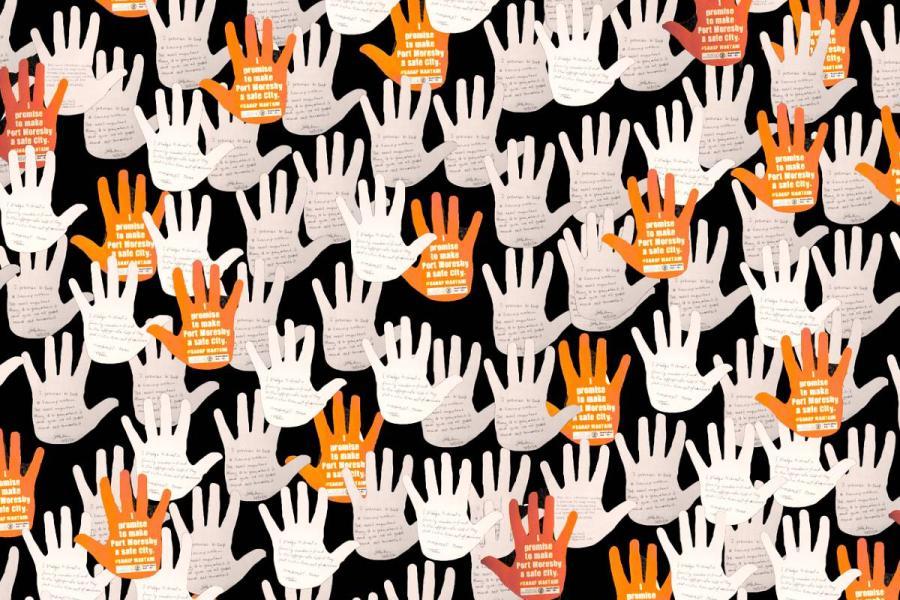
Story
24 October 2024
Standing in Solidarity with the Pacific: “If we save the Pacific, we will save the world.”
Yet, amid this harsh reality, the people he met delivered a powerful message: "We are the guardians of the ocean. We are not passive observers of climate change—we are survivors. We will take action, using our traditional knowledge and working with our communities to confront these challenges."For thousands of years, the people of the Pacific have lived in harmony with the ocean and nature. But now, more than ever, the international community must rise to its responsibility. Empty promises are no longer an option. What is needed is decisive, urgent action.At the Pacific Islands Forum Summit and in meetings with Pacific leaders, a unified voice emerged: “We are not small islands. We are large ocean states, united in our resolve and strength. This is an ocean of peace, where cooperation must prevail over competition.”On the issue of climate change, Pacific leaders are not calling for incremental steps. They demand a bold vision and meaningful global action. “Enough with the talk—it's time for action.”As we celebrate UN Day this year, I reaffirm the UN’s unwavering commitment to the Pacific. We stand firmly with the region in the fight against climate change and call on the international community to act. The UN Secretary-General has made it abundantly clear: we are in full solidarity with the Pacific. We will work side by side with Pacific peoples and leaders to demand urgent action, urge the G20 to step up, and push for critical reforms in international institutions.Sea-level rise poses the most immediate existential threat to the Pacific. By 2050, Funafuti, the capital of Tuvalu, could be submerged by daily tides. Sea levels in the region are rising twice as fast as the global average. More than 70% of key infrastructure sits within 500 meters of the coast, and over half of the population lives within a kilometer of the sea.If current trends continue, entire population centers could become uninhabitable within 50 years. This is why the UN Secretary-General has issued an SOS on sea-level rise and why Pacific leaders are advocating for a dedicated session at the UN General Assembly to address this urgent crisis. As the people of Hahake and the entire Pacific fight for their future, the UN will stand with them on the global stage.The impacts of sea level rise have already triggered unprecedented migration within and across Pacific nations. Over 50,000 Pacific Islanders are forced to migrate annually due to climate change. While the Pacific has a rich history of migration and regional solidarity, this new wave presents unique challenges. Those who are displaced and the communities receiving them are both under constant threat from rising seas.Critical sectors are being affected. Nurses, teachers, doctors, workers, fishers, engineers, communities and young people are being displaced, creating significant gaps in essential services. Already, more than 1,000 nurses have left Fiji, Kiribati, Nauru, Tonga, and Tuvalu, adding immense pressure on local healthcare systems.The UN is fully committed to support the Pacific in addressing this crisis. Sea-level rise touches every aspect of life in the Pacific. Beyond climate change, the UN is working hand-in-hand with the region to advance the achievement of the Sustainable Development Goals (SDGs) and uplift millions from poverty and inadequate living conditions.However, the global progress on the SDGs is concerning. Only 17% of the SDG targets are on track, while another 17% are regressing. The rest are seeing limited or stagnant progress. We are far from achieving our collective goals.The UN is equally committed to promoting social cohesion and peacebuilding across the Pacific. While the region remains largely peaceful, social cohesion and sustained peace cannot be taken for granted. Past conflicts have led to violence and fragmentation in some areas. We must work together to ensure this does not happen again. The UN remains dedicated to strengthening social cohesion, preserving democratic spaces, and safeguarding human rights.On this UN Day, I reaffirm the UN’s complete solidarity with the Pacific. We will stand by your side on the climate change frontlines, work tirelessly to advance the SDGs and regional goals, and support a future that is inclusive of women and youth. Together, we can build a stronger, more resilient Pacific.Happy UN Day to all - let us walk together toward a brighter and sustainable future. It is in our reach.
1 of 5
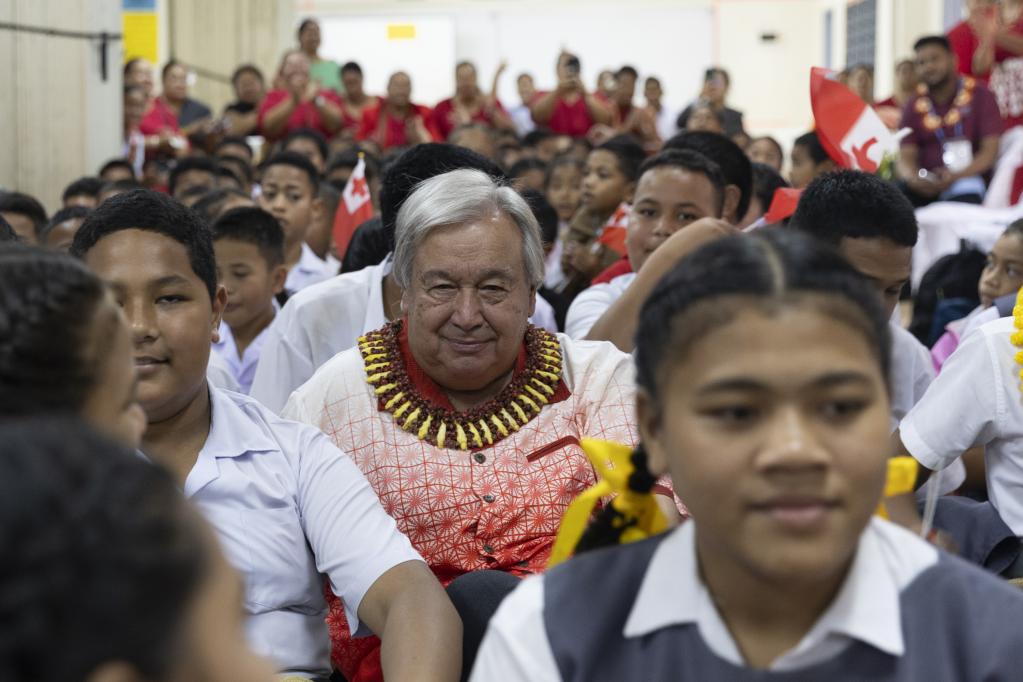
Press Release
02 September 2025
Fiji launches Agribusiness Incubation Center with European Union support
The ABI is funded by the European Union through the Food and Agriculture Organization of the United Nations’ (FAO) Sustainable Transformation of Domestic Agrifood Systems in Fiji, Solomon Islands, and Samoa (STODAS) project. The initiative is a key collaboration between the Ministry of Trade, Co-operatives, Micro, Small and Medium Enterprises and Communications, Ministry of Agriculture and Waterways, and FAO. The center aims to promote sustainable agricultural growth and boost self-reliance and food security.The official launch ceremony was held at the Ministry of Agriculture and Waterways Head Office. It was jointly officiated by Deputy Prime Minister and Minister for Trade, Co-operatives, Micro, Small and Medium Enterprises and Communications, Hon. Manoa Kamikamica, Minister for Agriculture and Waterways, Hon. Tomasi Tunabuna, and the Ambassador of the European Union to the Pacific, H.E. Ms. Barbara Plinkert.“Highlighting the Center’s critical role, Hon. DPM emphasised its impact on value addition, resilience, and advancing Fiji's vision for an export-driven, climate-smart, and diversified agriculture industry.“This initiative demonstrates our unwavering commitment to strengthening food security, empowering farmers—especially women and youth—and unlocking new growth opportunities through agribusiness. The ABI Center will be a catalyst for innovation, job creation, and the nurturing of the next generation of Agripreneurs in Fiji,” said Hon. DPM.Minister for Agriculture and Waterways Hon. Tomasi Tunabuna, affirmed that the Center is a timely investment aligned with the Government’s efforts to modernize agriculture and foster sustainable rural development.“The Agribusiness Incubation Center equips farmers and agripreneurs not only with advanced farming skills but also with the business acumen necessary for success. It bridges the critical gap between farm production and market access, thereby increasing income opportunities while advocating for sustainable practices,” Hon. Minister added. In her remarks, the Ambassador of the European Union to the Pacific, H.E. Ms. Barbara Plinkert said that the COVID-19 pandemic has taught us the critical importance of agriculture to our lives and domestic economy.“The European Union is proud to support Fiji’s Agribusiness Incubation Centre through our Sustainable Transformation of Domestic Agrifood Systems in Fiji, Samoa, and Solomon Islands project, which is working together to strengthen policy and institutional environments, enhance domestic crop and livestock production, and promote rural agribusiness and private sector development.”“With our Global Gateway Strategy, we aim to mobilise significant investments in key areas such as infrastructure, human development, and digitalisation, and create new opportunities for businesses and communities to thrive.”“Let us work together to turn agricultural potential into real economic opportunities for Pacific agri-entrepreneurs, businesses, and communities,” concluded Plinkert.The establishment of this Center is the result of a robust partnership between the Government of Fiji, the European Union, FAO, and key industry stakeholders. This collaboration ensures alignment with Fiji’s National Development Plan, which prioritises productivity enhancement, value chain strengthening, and positioning agriculture as a cornerstone of sustainable growth."FAO is pleased to technically support the establishment of the third agribusiness incubator under the EUR10 million STODAS project, this time in Fiji. The others are in Samoa and Solomon Islands,” said Joann Young, Assistant Representative of the Food and Agriculture Organization of the United Nations (FAO) in Fiji. She also appreciated the kind funding from the European Union for this agribusiness incubator, which will support Fijian youth, women, and other scalable agribusiness entrepreneurs to grow.
"When entrepreneurs grow, they will be transformational in addressing food and nutrition security in the Pacific,” Young added. The Agribusiness Incubation Centre is now open and ready to provide services to entrepreneurs, co-operatives, and MSMEs across Fiji, heralding a new chapter of growth and sustainability for Fiji’s agribusiness landscape.ENDSMedia Contact:
European Union Delegation to the Pacific
Mohammed Nazeem Kasim, EU Press and Information Officer on email: Mohammed-Nazeem.KASIM@eeas.europa.eu or +679 3313 633 (110)
Ministry of Trade, Co-operatives, Micro, Small and Medium Enterprises and Communications
MSME Fiji Unit on email: support@msme.mcttt.gov.fj or +679 9986014 (Viber) or 163
Food and Agriculture Organization of the United Nations
Priya Chand, Communications Specialist, Food and Agriculture Organization of the United Nations - Sustainable Transformation of Domestic Agrifood Systems in Fiji, Solomon Islands and Samoa (STODAS) Project on email: priya.chand@fao.org or +679 8300010
"When entrepreneurs grow, they will be transformational in addressing food and nutrition security in the Pacific,” Young added. The Agribusiness Incubation Centre is now open and ready to provide services to entrepreneurs, co-operatives, and MSMEs across Fiji, heralding a new chapter of growth and sustainability for Fiji’s agribusiness landscape.ENDSMedia Contact:
European Union Delegation to the Pacific
Mohammed Nazeem Kasim, EU Press and Information Officer on email: Mohammed-Nazeem.KASIM@eeas.europa.eu or +679 3313 633 (110)
Ministry of Trade, Co-operatives, Micro, Small and Medium Enterprises and Communications
MSME Fiji Unit on email: support@msme.mcttt.gov.fj or +679 9986014 (Viber) or 163
Food and Agriculture Organization of the United Nations
Priya Chand, Communications Specialist, Food and Agriculture Organization of the United Nations - Sustainable Transformation of Domestic Agrifood Systems in Fiji, Solomon Islands and Samoa (STODAS) Project on email: priya.chand@fao.org or +679 8300010
1 of 5
Press Release
25 July 2025
United Nations Welcomes New Zealand’s NZD 4 million Commitment to Fiji’s HIV Outbreak Response
This catalytic funding reaffirms New Zealand’s leadership and long-standing commitment to public health, equity, and regional solidarity in the Pacific.The UN Resident Coordinator for Fiji, Tonga, Tuvalu, Solomon Islands, and Vanuatu, Mr Dirk Wagener, noted the timeliness considering the rapidly growing cases in the country.“The Pacific is facing a turning point in its HIV response. I sincerely thank the Government of New Zealand for its decisive and compassionate leadership. This funding is more than a contribution—it is a signal of shared responsibility and a boost to regional health security.”“The United Nations remains firmly committed to supporting the Government of Fiji in averting further transmission and in saving lives. Our collective response must be fast, focused, and grounded in human rights, equity, and dignity.”New Zealand’s NZD 4 million contribution will strengthen efforts already underway, including: expansion of community-based HIV testing and treatment services; roll-out of harm reduction programmes, including the introduction of needle and syringe programmes for people who inject drugs; implementation of Pre-Exposure Prophylaxis (PrEP) for populations at substantial risk of HIV infection; and strengthening peer-led and community-based support models to improve treatment literacy and adherence while reducing stigma.
This announcement builds on the momentum generated at the Development Partners’ Roundtable on Fiji’s HIV Outbreak Response, convened in June 2025 by the Ministry of Health and Medical Services and the United Nations.The Roundtable brought together government and key bilateral and multilateral partners—including New Zealand, Australia, the United States, the European Union, Germany, France, Spain , Canada China, Japan, Republic of Korea, India, Indonesia as well as UN agencies—to align strategic support and coordinate resources in response to what is now the world’s fastest-growing HIV epidemic.
As detailed in the 2025 UNAIDS Global AIDS Update, since 2010, Fiji has recorded a 3091% increase in estimated new HIV infections. In 2014, fewer than 500 people were living with HIV. By 2024, this number had surged to an estimated 5,900 (range: 4,500– 8,900). Shockingly, only 36% of people living with HIV in Fiji were aware of their status last year, and just 24% were receiving treatment.In response to these alarming figures, the Government of Fiji declared a national HIV outbreak in January 2025.The United Nations continues to support the response through the Joint UN Team on HIV, which is led by UNAIDS and includes the active engagement of UNICEF, UNFPA, WHO, UNDP, UN Women, ILO, and UNODC. These UN agencies are also playing a lead role in the National HIV Outbreak and Cluster Response Taskforce, as well as in technical working groups on prevention, treatment, diagnostics, data, and community engagement—ensuring evidence-based and community-driven responses are delivered in partnership with the Ministry of Health and Medical Services.
The United Nations calls on all partners to sustain momentum and ensure the HIV outbreak response is fully resourced and community-led. This includes continued investment in Prevention scale-up, integrated service delivery, and the long-term sustainability of the national HIV programme.
This announcement builds on the momentum generated at the Development Partners’ Roundtable on Fiji’s HIV Outbreak Response, convened in June 2025 by the Ministry of Health and Medical Services and the United Nations.The Roundtable brought together government and key bilateral and multilateral partners—including New Zealand, Australia, the United States, the European Union, Germany, France, Spain , Canada China, Japan, Republic of Korea, India, Indonesia as well as UN agencies—to align strategic support and coordinate resources in response to what is now the world’s fastest-growing HIV epidemic.
As detailed in the 2025 UNAIDS Global AIDS Update, since 2010, Fiji has recorded a 3091% increase in estimated new HIV infections. In 2014, fewer than 500 people were living with HIV. By 2024, this number had surged to an estimated 5,900 (range: 4,500– 8,900). Shockingly, only 36% of people living with HIV in Fiji were aware of their status last year, and just 24% were receiving treatment.In response to these alarming figures, the Government of Fiji declared a national HIV outbreak in January 2025.The United Nations continues to support the response through the Joint UN Team on HIV, which is led by UNAIDS and includes the active engagement of UNICEF, UNFPA, WHO, UNDP, UN Women, ILO, and UNODC. These UN agencies are also playing a lead role in the National HIV Outbreak and Cluster Response Taskforce, as well as in technical working groups on prevention, treatment, diagnostics, data, and community engagement—ensuring evidence-based and community-driven responses are delivered in partnership with the Ministry of Health and Medical Services.
The United Nations calls on all partners to sustain momentum and ensure the HIV outbreak response is fully resourced and community-led. This includes continued investment in Prevention scale-up, integrated service delivery, and the long-term sustainability of the national HIV programme.
1 of 5
Press Release
07 March 2025
Joint UN Statement for International Women’s Day 2025
This year’s International Women’s Day theme “For ALL Women and Girls: Rights. Equality. Empowerment” recognizes and upholds the rights of women and girls in all their diversity. It aligns with key frameworks such as the Beijing Declaration and Platform for Action, the Convention on the Elimination of All Forms of Discrimination against Women (CEDAW), the Sustainable Development Goals (particularly Goal 5), and the UN system-wide Gender Equality Acceleration Plan.Despite gains since the Beijing Platform for Action was adopted in 1995, globally, one in 10 women still live in poverty; over 2.7 billion women are legally restricted from having the same choice of jobs as men; nearly 60 percent of women’s employment is in the informal economy, and in low-income countries, it is more than 90 percent; around 257 million women who want to avoid pregnancy are not using safe, modern methods of contraception; and, one woman or girl is killed every 10 minutes by their intimate partner or family member. Furthermore, nearly half of the world’s 281 million international migrants are women and a shocking 71 percent of women and girls are victims of human trafficking worldwide.In the Pacific, we have seen strong commitments made at the regional level through the Pacific Leaders’ Gender Equality Declaration, the Pacific Platform for Action for Gender Equality and Women’s Human Rights, and the 2050 Blue Pacific Strategy.While there have been decades of progress to advance sexual and reproductive health and rights, some Pacific countries have seen an increase in the Adolescent Birth Rate or teenage pregnancy and child marriage, particularly of girls—with adverse effects on the health, education and well-being that span their life course. Furthermore, Pacific Island Countries have the lowest levels of women’s political representation in the world - at just 5.8 percent.Gender inequality persists across our region - despite many countries being matrilineal - with disparities in access to employment, political and social participation, and in access to education, social protection and health.Marginalized women and girls, including those from indigenous communities, women with disabilities, and LGBTQIA+ individuals, face unique challenges that must be recognized and addressed with sensitivity and urgency. Climate change and natural disasters increase risks and inequalities, particularly if women and girls in all their diversity, are not integral to all phases of humanitarian preparedness and response. Our Pacific solutions must be inclusive, holistic, and reflective of the diverse experiences of women and girls in our region.Violence against women and girls in the Pacific is among the highest in the world—about twice the global average. Between 75 and 90 percent of all market vendors in the Pacific are women and yet women are often excluded from market governance and decision-making.And so, while we have reason to celebrate today, we know we have a lot of work to do.Gender equality is key to advancing progress in human rights, climate action, and sustainable development, which is the focus of the UN Sustainable Development Cooperation Framework for the Pacific.The Gender Equality Acceleration Plan’s emphasis on empowering women as leaders and amplifying their voices aligns with this regional context. International Women’s Day 2025 provides a platform to celebrate these achievements while mobilizing collective action to address the structural barriers that persist. Therefore, as we celebrate International Women’s Day, let us reaffirm our commitment to advancing gender equality and women's empowerment across the Pacific. We call upon governments, civil society, the private sector, and communities to commit to actionable steps that promote gender equality and empowerment. Let us strengthen partnerships that leverage diverse voices and expertise. Let us amplify the calls for justice, for equality, and for a brighter, safer and more prosperous future for women and girls everywhere.
1 of 5
Press Release
24 January 2025
As Fiji Announces HIV Outbreak, UNAIDS Echoes Calls for a Non-Discriminatory Approach
SUVA/BANGKOK, 23 January 2025—The Government of Fiji has declared an HIV outbreak in response to a sharp increase in reported newly diagnosed cases during 2024. A targeted 90-day containment plan will speed up immediate, high-impact interventions while the HIV Surge Strategy approved last September will guide the AIDS response until 2027. UNAIDS will continue to support the generation of strategic information, technical planning, program innovation and resource mobilisation as Fiji implements short- and longer-term plans to prevent new infections and ensure people living with HIV benefit from life-saving services. For these strategies to work, those most vulnerable to HIV infection must be able to safely access the information and care they require. They should also play a leading role in the design and delivery of those services.“Prioritization of HIV by the Government is critical for not only the people of Fiji, but the entire Pacific,” said Eamonn Murphy, Regional Director of UNAIDS Asia Pacific and Eastern Europe Central Asia. “Rising new infections in Fiji put the entire Pacific region at risk. Political will is the essential first step. There must also be community leadership and regional solidarity to ensure these strategies work.” As Minister for Health and Medical Services, Hon. Dr. Ratu Atonio Lalabalavu noted yesterday, there were 1093 newly-reported cases from January to September 2024. This is three times as many as there were in 2023. According to the Ministry, reported cases have increased nine-fold over the last five years. The rapid rise in newly-diagnosed cases met the national criteria for declaring HIV a national outbreak.Preliminary Ministry of Health numbers show that among the newly-diagnosed individuals who are currently receiving antiretroviral therapy, half contracted HIV through injecting drug-use. An additional concern is that over half of all people living with HIV who are aware of their status are not on treatment.“Fiji has the second fastest growing HIV epidemic in the Asia and the Pacific region. These data do not just tell the story about a lack of services,” Mr Murphy explained. “They indicate that even when people know they are HIV-positive, they are fearful to receive care. There must be a deliberate effort to not only strengthen health systems, but to respond to the unique needs of the most affected populations, including people who use drugs. Perpetuating prejudice against any group will slow progress. We must work together to make it safe and easy for people to access the information, services and support they require. In the words of Minister Lalabalavu ‘discrimination and stigma will only serve to make our current situation worse’.”The HIV Outbreak Response Plan calls for a combination of prevention approaches including the introduction of harm reduction programs for people who inject drugs. Since the sexual transmission of HIV remains a significant factor, other key approaches are condom distribution and pre-exposure prophylaxis or PrEP. (PrEP is treatment taken by an HIV-negative person to reduce the risk of contracting HIV if they are exposed.) Through the Australian Government’s Indo-Pacific HIV Partnership, UNAIDS is supporting Fiji to scale up these comprehensive prevention approaches. The United Nations in Fiji recognizes the Government’s decisive leadership in addressing the HIV epidemic and reaffirms its commitment to supporting the national response.“The declaration of an HIV outbreak and the launch of high-impact interventions, such as needle syringe programs and PrEP, mark a critical turning point in Fiji’s efforts to combat the epidemic,” said Mr. Dirk Wagener, United Nations Resident Coordinator in Fiji. “We commend the Hon. Minister for Health and Medical Services for his bold leadership in taking this pivotal step. The Joint UN Team on HIV, with UNAIDS as its Secretariat, stands ready to provide coordinated and sustained support to ensure the success of these strategies and to protect the most vulnerable.”The HIV Surge Strategy includes tactics for Fiji to achieve the Global AIDS Strategy targets—95% of all people living with HIV aware their status, 95% of diagnosed people on antiretroviral therapy, and 95% of people on treatment achieving a suppressed viral load. People who attain viral suppression through treatment adherence and monitoring will live normal healthy lives and a person with an undetectable viral load cannot pass on the virus through sexual intercourse. This is known as Undetectable equals Untransmittable (U=U). “HIV treatment is effective. It not only keeps people living with HIV healthy, but can help prevent new infections,” explained Renata Ram, UNAIDS HIV Adviser in Fiji. “Every Fijian has a part to play by making our homes, communities, schools, workplaces and places of worship, spaces that support and care for people rather than shame and exclude them.”
1 of 5
Press Release
17 January 2025
Joint Humanitarian Support to Vanuatu Following Devastating Earthquake
The quake impacted approximately 80,000 people, leaving 14 people dead, more than 250 injured, and temporarily displacing more than a thousand. The humanitarian response, led by the Government of Vanuatu, mobilized swiftly after the event to provide life-saving assistance to those most in need. The Pacific Humanitarian Team (PHT), which includes the United Nations and humanitarian organizations, promptly collaborated with national and international partners to bolster the government's efforts. Immediate funding from the Central Emergency Response Fund, UN agencies and international partners has been essential in the aftermath, facilitating the swift deployment of resources and support to the affected communities.The response focused on supporting the most vulnerable communities and temporarily displaced people. Key activities include strengthened health services through mobile clinics and temporary medical facilities, restoration of critical water supplies and distribution of hygiene kits, provision of emergency shelter and essential non-food items, implementation of critical protection measures, delivery of food aid, and support for the continuity of education through the establishment of Temporary Learning Spaces, mental health and psychological support. Emphasizing the significance of joint response, the Resident and Humanitarian Coordinator/PHT Chair Mr. Dirk Wagener said, "This coordinated effort underscores our shared commitment to leave no one behind. Together with the Government of Vanuatu, the Pacific Humanitarian Team and partners, we are not only addressing immediate needs but also focusing on recovery and rebuilding to create a more resilient future for affected communities."While addressing immediate needs, the PHT continues to collaborate with the Government of Vanuatu to ensure a seamless transition into the early recovery phase. The United Nations and humanitarian partners remain committed to supporting national-led recovery and resilience efforts, ensuring that affected communities receive the necessary assistance and that none is left behind. #ENDSFor Further Information contact: Debbie Singh Strategic Communications SpecialistOffice of the UN Resident CoordinatorEmail: debrah.singh@un.org |Tel: O +679 278 7513
1 of 5
Latest Resources
1 / 11
1 / 11


